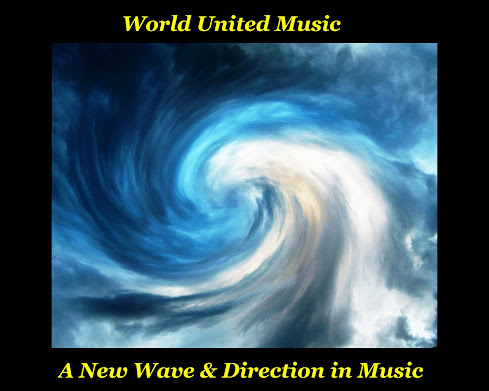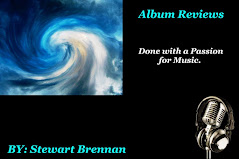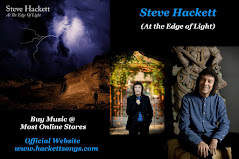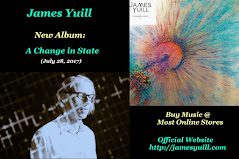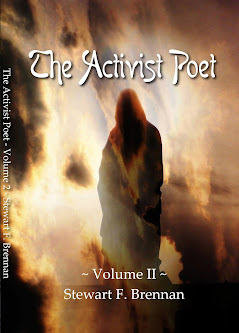Progressive Rock Through the Ages
Progressive
Rock is one of several experimental genres that evolved out of Rock n Roll in mid
1960’s. It was a purely creative genre that carried at its initial core, reflections
of morality, philosophies, political views and the social economic conditions
of the times.
The
genre had a wide range of influence and emerged in the mid 1960's when record
labels allocated more creative control to their artists who began pushing the
confines of the twelve bar, 2 to 3-minute Pop / Rock n Roll song structures. The
influence of folk, jazz, blues and classical music began finding their way into
the experimentation as did the new psychedelic wave which also grew out of the
evolution of Pop and Rock n Roll.
Additional
elements that contributed greatly to the nature of Progressive Rock was the
infusion of more poetic lyrics and or new technology that helped artists produce
sounds to bridge their creative ideas for both studio album and onstage
performance. The recording studio thus became a place of creative artistic freedom
and focus which often involved producing music for listening rather than
dancing. In essence, Progressive Rock was based on a fusion of styles,
approaches, genres, and creative freedom.
Music
is placed in descending order of Release Date Starting with Jan of the earliest
year and ending with Dec of the last year in the decade. The purpose is to give
the music a sense of time and atmosphere for the listener. More music will be
added as it becomes available.
The
mid 1960’s to the mid 1970’s was a very social and political expressive era that
contained a very vocal anti-war and anti-immoral establishment voice. Much of
this was expressed through progressive music. In fact, freedom of expression in
music was a major factor in carrying the anti-war voice which created enormous
pressure on the US government to end their war on Vietnam.
Music
is placed in descending order of Release Date Starting with Jan of the earliest
year and ending with Dec of the last year in the decade. The purpose is to give
the music a sense of time and atmosphere for the listener. More music will be
added as it becomes available.
With
the Vietnam war at an end, the 1960’s anti war culture had also come to its
conclusion leaving only the anti-establishment voice in music which was
expressed in its rawist form through Punk Rock and to a lesser degree in heavy
metal.
Music
is placed in descending order of Release Date Starting with Jan of the earliest
year and ending with Dec of the last year in the decade. The purpose is to give
the music a sense of time and atmosphere for the listener. More music will be
added as it becomes available.
It’s
Important to note that while music became more commercial during the late
1970’s, the music Industry was also under economic pressure to consolidate.
Label
Collusion:
In 1984 -85 the
big six recording companies “Warner”, “Universal”, “EMI”, “BMG”, “Sony”, and
“Polygram” jointly announced that they would adopt CD technology and stop
producing Vinyl records within a six-month period following their announcement.
Music variety and the political protest voice
that connected people, largely disappeared from the airwaves not long after the
first era of vinyl production ended. What the major labels pushed on the public
through the consolidated and syndicated Pop 40 radio stations was a politically
sterilized product that was disconnected from reality. The Music Industry as it
was in the 1960’s to early 70’s was gone and was replaced by large
entertainment conglomerates which had sister companies directly in the war
industries.
So, it’s not surprising that
the resulting music pushed by the radio and TV entertainment industry was more
and more corporately sterilized and disconnected with political reality during
that time period.
1980’s
Progressive Rock
Music
is placed in descending order of Release Date Starting with Jan of the earliest
year and ending with Dec of the last year in the decade. The purpose is to give
the music a sense of time and atmosphere for the listener. More music will be
added as it becomes available.
Progressive Rock all but disappeared from the public airwaves from the mid 1980’s to the 2000’s due in most part to label consolidation which carried by default, economic and creative constraints, creative control and a subsequent narrow vision of music content.
The
years succeeding the 1985 label collusion are regarded by some as the Dark
times in Rock music history. Music with political substance began to fade from
the corporate controlled airwaves that pushed a disconnected Pop 40 format.
As
CD technology allowed the major labels to corner the market, music history from
the first vinyl era was mostly put on the shelf and simply not made available with
the exception of greatest hits compilations or large revenue generating albums.
Fewer labels remained or retained their independence and were bought up or simply
went bankrupt leaving fewer doors open for artists to knock on.
As
both TV and Radio airwaves came under mega corporate control, the anti-war and
political protest voice that was heard in music and news during the mid 60’s to
mid 70’s was completely absent by 1990. The 1990’s Progressive Rock era was
mostly hidden, although there were some bright spots in the 1990’s for activism
in music such as Roger Waters 1992 album “Amused to Death” in which Roger
summed up the state of the world brilliantly. Unsurprisingly however, Roger
Waters was openly attacked in the corporate media for his expression and
opinions within his music.
An
interesting observation in parallel with the decline of freedom of expression
in music is that the geo-political and economic narrative held by western governments
had no checks and balances and thus began to launch wars seemingly without
resistance since control of opinion in news and music was under corporate
control.
1990’s
Progressive Rock (Under Construction)
Music
is placed in descending order of Release Date Starting with Jan of the earliest
year and ending with Dec of the last year in the decade. The purpose is to give
the music a sense of time and atmosphere for the listener. More music will be
added as it becomes available.
However, by the mid to late 1990’s, technology once again changed the music playing field as computers, computer programs, the Internet and the home recording studio provided artists with new cost-effective tools to create music and reach an audience without having to knock on closed Industry doors.
The
compressed digital music file (mp3) exploded across the internet in 1995 and online
record stores such as CD Baby, started by Derek Sivers in 1998, became the way
for independent and unsigned artists to sell their music to an international
online audience.
Suddenly the
technology to make CD’s was available to everyone on the home computer. The compact
mp3 format made sharing music by email a unique thing until Napster came along
in 1999 and provided a platform for music fans to share their files with each
other.
Technology had advanced
to the point that it allowed the music contained on old Vinyl records to be
digitized onto the home computer. This practice became hugely popular because
the music that had not been made available on CD by the big record labels was
not only being digitized by music fans but was being shared and burned into
CD’s on home computers.
The sharing
aspect of Napster (1999 to 2001) was met by both outrage and applause. It sparked
great interest by many across the world as old music which had been shelved in
the CD era, suddenly became available on the file sharing platform, but most
importantly, Napster gave rise to the “International Social Network” where
chat rooms became HUGE information sharing hubs that sparked the beginning of
the 21st century truth movement.
File
sharing and chat rooms on Napster literally tore down the walls of control that the
corporate music industry held since the 1985 collusion.
By
2001 iTunes came into existence with a 60 / 40 revenue sharing platform where all
artists could sell their music in mp3 format. Internet pages and social
networks like YouTube became the new airwaves from 2005 onwards where an
explosion of expression and opinion surged once again to breathe
new life into all forms of music including Progressive Rock.
It’s
also important to mention that the US and UK governments went to war in 2001
and 2003 while the Internet and social communication was in its infancy.
However, the Internet was a global online communication platform without
censorship in a time, that allowed free speech and opposing political views to emerge.
By 2005 through 2008, YouTube became the International platform for free
speech, Investigative journalism and music promotion by signed, unsigned and
Independent artists. During this period of time, music and ideas went viral as
the Internet also provided a platform for Independent Investigative journalism,
so the Internet became a place that allowed the anti-war voice to re-emerge while
also giving artists a place to express their thoughts through music. The Jeanie
was out of the bottle and it connected people all over the world.
Creative
experimentation in music returned with a social political awakening that carried
a conscience with it, which continued to evolve from 2005 through 2015.
During
this period of time, Progressive Rock returned to the spotlight with reflections
of morality, philosophies, political views and the social economic conditions
of the times. Progressive Rock had come full circle from the 1960’s to the beginning
of a new age.
Music
is placed in descending order by year. More music will be
added as it becomes available.
Music expression exploded across the Internet reviving the political voice at a level not heard since the early days of Progressive Rock. Mainstream artists joined in and gave the public a stronger voice. Although I will note that Roger Waters has always been vocal and a champion of the down trodden.
While
a new world of music and journalistic freedoms emerged, the corporate
entertainment Industry began losing control of their economic and political
narrative; so much so that internet free speech championed by investigative
journalists and independent musicians along with their followers stopped the US,
France and UK governments from going to war on the people of Syria. The anti-war
voice proved it was alive and well in the 21st century.
2015
to 2019 Progressive Rock
Music
is placed in descending order by year. More music will be
added as it becomes available.
Progressive rock had been synonymous with free speech, activism and the anti-war movement in its earlier days (1967 to 1975), so when progressive rock surged in the 2015 to 2019 years, it was due to a growing political enlightenment in the world at large; and it became a global phenomenon.
However,
the backlash by the corporate establishment to news and music independence is
now rearing its ugly head once again through its censorship of the Internet via
the mega corporations that have consolidated their control over the social
networks and Internet search engines.
As
the World goes through a Corporate and Government imposed lock down in 2020,
free speech and freedom of expression have become major targets of a Corporate
cartel in collusion with governments across the world. Although we are all
victims in this corporate war on humanity, Independent Journalism and
Independent music artists are the ones directly affected by the government
approved corporate censorship and the corporate directed government shutdown of
all society including all entertainment venues. There is no doubt that a prolonged
lock down will bankrupt many people including music venues leaving many artists
without an income. So, this has become a war of survival between the human
community and corporate totalitarianism.
What
we do collectively from this day forward will decide the future of free speech
in news and music. Humanity will either overcome corporate control to usher in
a new millennium of freedom or the boots of corporate tyranny will stomp on the
face of humanity till the end of days.
Supporting
Independent journalists and artists is crucial to our community’s survival
because they carry with them the moral high ground of freedom of speech.
Freedom
of speech, is vital to the survival of our democracies.
When
we look at Progressive Rock in hindsight, we see it as the evolution of Rock n Roll,
and if we conceptualize Rock n Roll in relation to "Progressive Rock",
we find that progressive music pushed Rock n Roll into greater complexity while
retracing the roots of folk, blues, Jazz and classical music with a
postmodernism ideology.
Rock
itself can be interpreted as a progressive idea as all sub genres such as
Psychedelic & Progressive Rock music have led to the general creation of "Rock"; …and Rock music is an expression of life, our social environment and
living conditions.
2020
to 2024 Progressive Rock
The
new decade is in lock down, but artists all around the world have stepped up to
comfort the initial shock, it will be our turn to help them in return very soon.
So, I suggest that readers of this post, go to the artists websites and buy their
music and / or merchandise and if possible, support their crowdfunding projects
or Patreon accounts. I also suggest supporting Independent journalists for their
huge contribution to keeping our communities alive and enlightened with the
truth.
Artists
can also help themselves by selling their music on Bandcamp. I’ve been
promoting Bandcamp as a place for fans to buy an artists music since I first discovered
them in 2010. They’ve been around since 2008 but I find it is the “ONLY” online
store that works FOR the artist by giving them approximately 85% of all music sales.
In
the past 30 days as of this posting, Bandcamp paid artists 22.6 Million US
dollars. If you compare this with say a corporate music streaming monster like Spotify
who took in over 6.8 Billion Euros in 2019 alone, and gave practically NOTHING
back to the artists...well you decide what kind of corporate crime that is…because
if that isn’t a crime, then I don’t know what is!
Think
Bandcamp, Bandcamp, Bandcamp…
I
created World United Music in 2010 as a means to help promote artists so they
might gain more attention and possibly earn a living with their music. Nothing
has changed as I continue working for as many artists as I can. I hope that you
the reader find value in what is written here today and share this post with
your online community so that they may discover new music that resonates with them.
The 21st century
will prove that we can achieve greater things when we all work together and
share the wealth, not only financially but spiritually as well.
Have a great day and enjoy
the music.
This
Post is Dedicated to all artists and Investigative journalists who have moved
the world out of darkness into the light; with a very special thank you to
Roger Waters.
Thank
you, Roger, for your brilliant combination of music and lyrics and the compelling
way that you speak truth to power. Bless You. ~ Stewart Brennan - World United Music
Links
of Interest:
Music:
Investigative
News:











